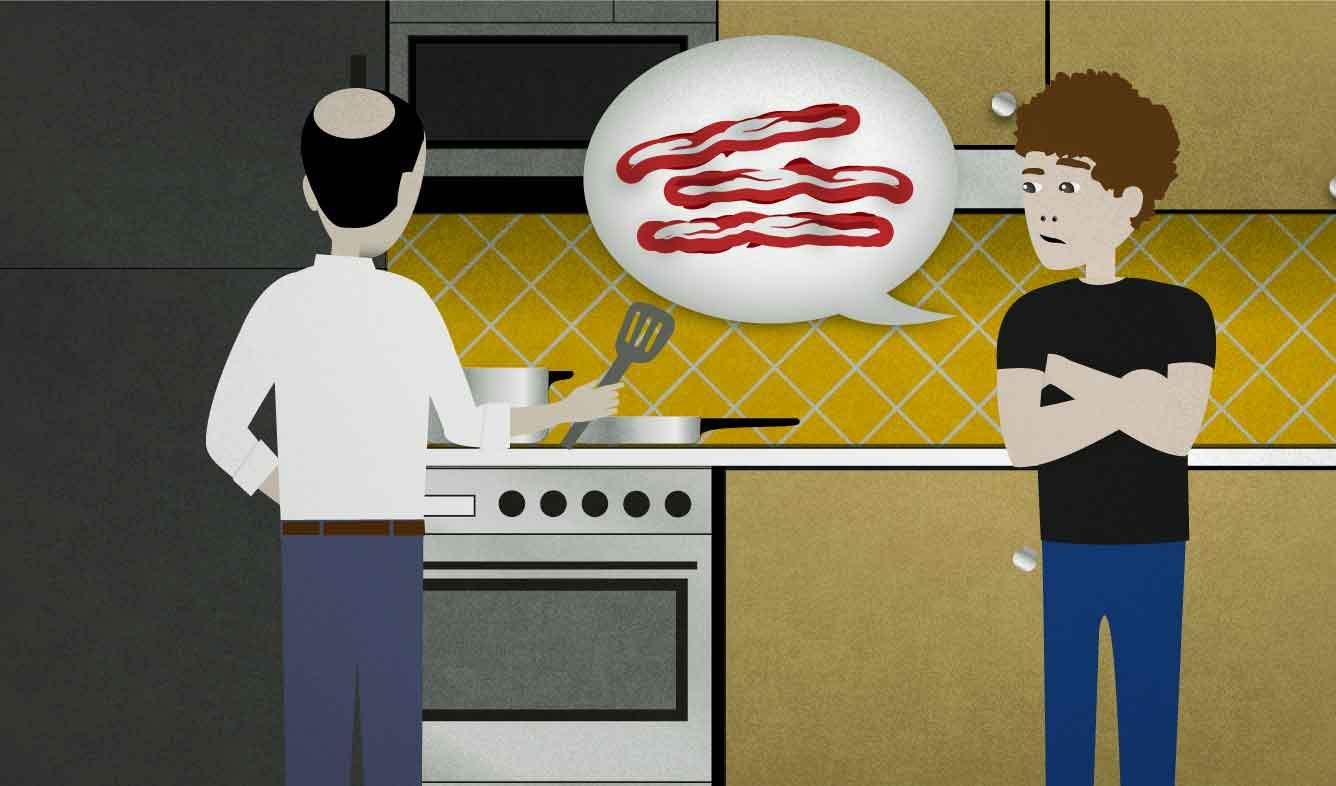“That stuff'll clog your arteries.”
You're staying at your uncle's house for a few days. He offers to make bacon for breakfast. You don't want it because it's unhealthy, and you want to warn your uncle not to eat it either.
That stuff'll clog your arteries.
Want Video and Sound? Follow us on YouTube

stuff
"Stuff" can mean almost any physical items or material.
It's similar to the word "things", but "things" are countable and "stuff" is not. So "stuff" is better to use when you're talking about a group of things that are different from each other - different sizes, shapes, etc.
"Stuff" is especially used to refer to things that you buy or own:
There's a good chance that you'll end up buying a lot of stuff while you're there.
Excuse me. Would you mind watching over my stuff for me for just a minute?
But "stuff" can also mean "topics" or "ideas", like in this example:
We have a lot of stuff to talk about.
(something)'ll (do something / be something)
The word "will" can be contracted to "'ll" after a noun like this:
My wife'll give you a call later.
The sun'll be setting soon.
No one'll find out!
This happens in casual spoken English. Avoid it when speaking or writing formally.
(some food) clogs your arteries
Your "arteries" are blood vessels which carry blood away from your heart within your body. In addition to arteries, you also have "veins" which carry blood back toward your heart.
When an artery gets "clogged", it means that something is blocking up the artery and there's a high risk that you could have a heart attack.
English speakers generally believe that eating fatty foods "clogs your arteries" and causes heart attacks. Even though veins can get clogged as well, we always use "arteries" in this expression.
